The Construction Process
Learning objective: to understand how to analyse and represent the functions, activities and tasks in a construction project.
Generic construction process protocols
Stage gate process
Activities and Tasks
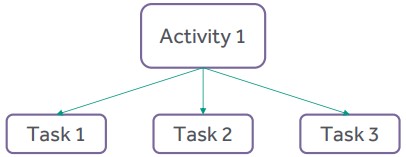
An activity is a group of work tasks capable of being carried out by an individual or an application
with a defined output that involves a resources transformation between Input and Output.
A task is the simplest work activity/action that cannot be subdivided
Process hierarchy
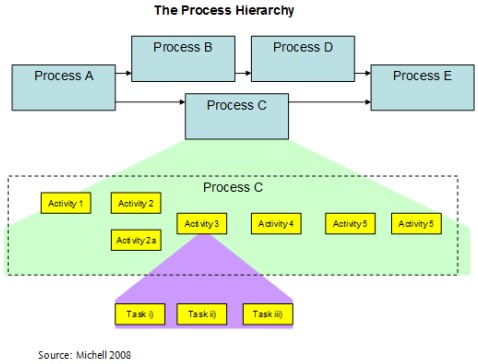
Processes:
Form a hierarchy from the subprocesses within
Are social and physical constructs
Can span business group/company boundaries
Form part of the value chain
How do you eat an elephant?
Work breakdown structure:
a deliverable-oriented hierarchical decomposition of the work to be executed by the project team to accomplish the project objectives and create the required deliverables.
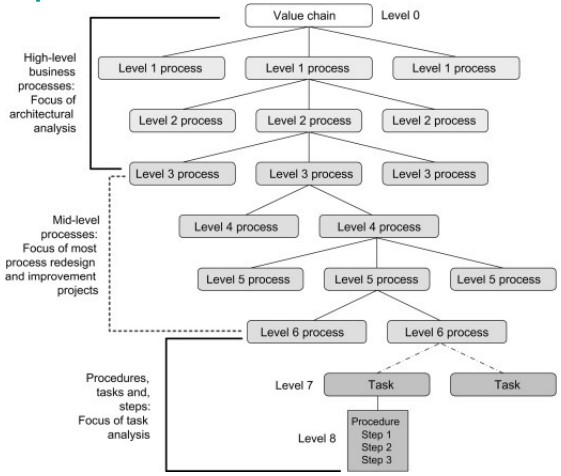
Construction projects are complex
Very large supply chain with a mixture of procedural and complex processes
Complex flow of knowledge between firms
Numerous loops and feedback cycles
Major processes that need to managed and measured with defined handoff points
The Organisation
Governance
Its internal environment
Its projects
The external environment
The imposed requirement regulation, outputs, customers, etc.
The Contractors :various tiers
The project requirements
The downward causations
The interconnections
The difference between a process and a system
Processes are the components of a system. A process is a series of connected steps or actions to achieve an outcome.They have purposes and functions oftheir own but cannot work entirely by themselves.
A system is a collection of parts and processes organised around a purpose and each system is embedded in other systems.
Each process is part of atleast one system, and each system is part of bigger systems, which are in even bigger systems, which are in even bigger systems etc.etc.etc.
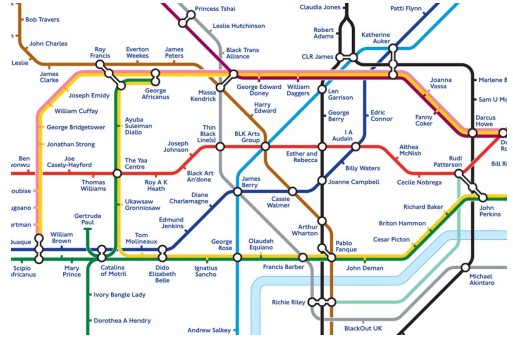
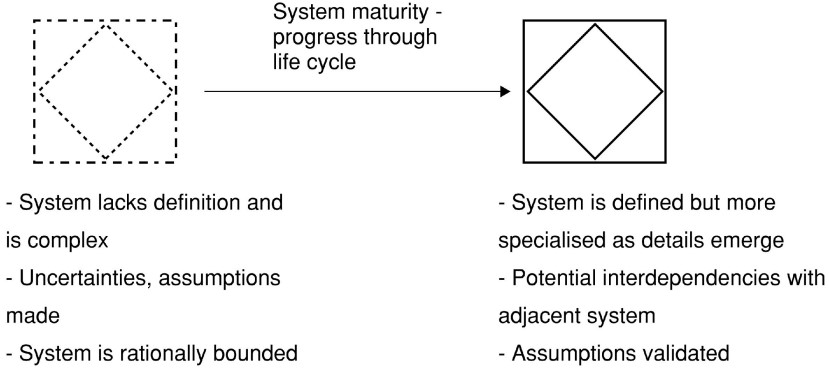
Interdependencies over time
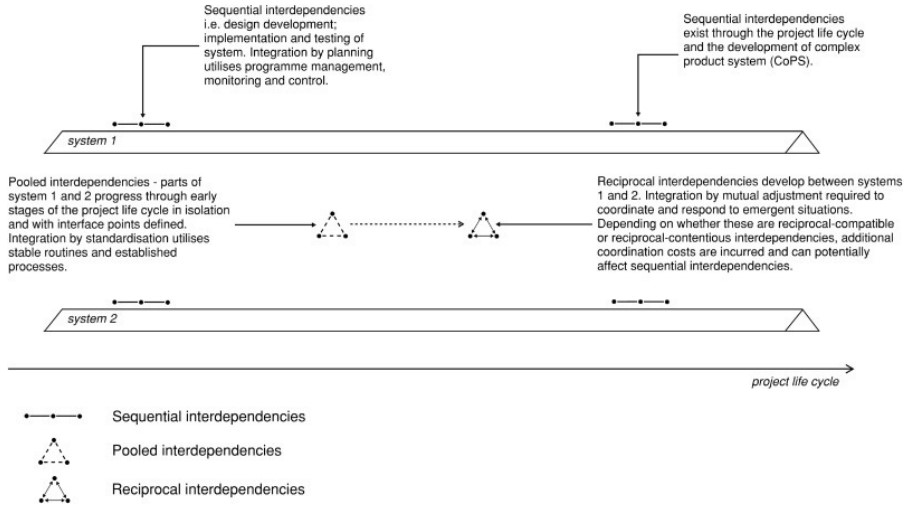
Generic process definitions
There have been a number of attempts to make generic construction processes, e.g.
e.g. RIBA Plan of Work (first introduced 1965), Process Protocol
Necessary for industry improvement and for project-to-project learning/coordination

Check and reference for process mapping
Generic process structure
Each level presents a different perspective indicated by different types of inputs or outputs.
Site level affected by labour organisation, activity scheduling, materials supply, system assembly (e.g. offsite manufacture) and design.
Firm-level productivity affected by management across projects, innovation and firm practices.
Industry level inputs and outputs are skills investment, research, competitive advantage and regulation.
Criticisms of generic process structure
Gives the illusion that youve solved your problem
Myopic focus on maintaining the structures rather than challenging status quo
When you have control of certain things then you have solved certain problems practical problems
you say fine, more of that please, lets go on solving problems
When youve chopped the thing you see it as in pieces things become more complicated
Most people involved in progress havent the faintest idea where theyre headed a completely fatuous goal, the future is symbolised as money they call themselves realists
It puts a bind on things constrains and limits e.g. craftwork meeting offsite production.
Conflict between static processes and creativity/innovation
Or do they free up space and time for innovation and creativity?
Early process models and maps
The framework of scientific management describes process as a transformation of inputs to outputs (Taylor 1913)
Relatively dominant perspective adopted in construction underlying machine metaphor
Shortcomings to this conceptualization:
E.g.thinking you can divide the total amount of work into parts and manage them separately is
not sufficient to improve design each task impacts the timeliness and quality of output of the
next
Systems Thinking and Complex Systems
Complex systems defy simplistic solutions
Systems thinking requires a shift of mind
Seeing interrelations rather than linear cause effect chains, and
Seeing processes of change rather than snapshots
Complex Systems
In Complex Systems interactions reinforce one another and result in behaviour that is very different from the norm
Whatthis means for processes ...
Production processes need to be analysed not only as transformation but also as flow and as value generation
Transformations, flows, and value exist as different aspects of processes
E.g. each design task is a transformation, and it is a stage in the total flow of design
Also, internal and external client requirements direct the transformation of input information into a design solution
But how do we manage this? Stage-gate process
Developed to reduce failure in engineering projects and New Product Development
A roadmap of predetermined, discrete stages
Decision points or gates GO/KILL/HOLD/RECYCLE
Gates simplify by focussing attention on key issues at the right time with the right people
Evolution of stage-gate
1st generation Phased Review Process (1960s, NASA)
Gates successful completion of all tasks
Engineering driven design of physical product only

Evolution of Stage-gate
2nd generation New Product Development (70s+ P&G, 3M)
Gates completion of tasks plus business decision
Cross-functional marketing & manufacturing integral
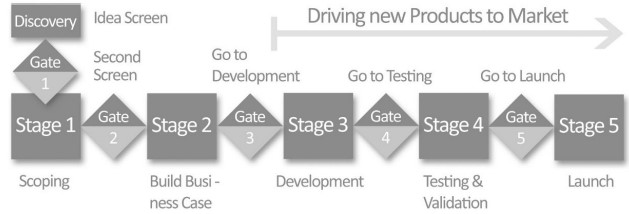

Benefits of 2nd-Gen Stage-gate
Better cross-functional teamwork
Less recycling and rework
Earlier detection of failures
Better launch
Shorter elapsed time
3rd generation Stage-gate
Efficiency speeding up already effective 2nd-Gen processes via the 4 Fs
Fluidity overlapping stages
Fuzzy gates conditional and situational GO decisions
Focused includes prioritisation
Flexible - each project is unique in its use of the process
The construction process
Working in your group:
Produce a high-level map of a universal/generic construction project process
Loosely format your map as a flowchart
Start by mapping what you know
Review your map to see whats on there
Actions, decisions, outcomes, relationships, patterns?
Review your map to see whats not on there
Were going to spend 30 minutes on this and will structure the session as needed
Unpacking these .

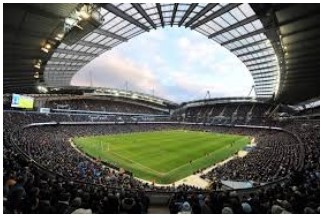
Things to think about
Where are you struggling?
What makes this task so difficult?
What might you have missed?
What can be represented?
What cannot be represented?
Are you struggling to keep up with the demands of your academic journey? Don't worry, we've got your back!
Exam Question Bank is your trusted partner in achieving academic excellence for all kind of technical and non-technical subjects. Our comprehensive range of academic services is designed to cater to students at every level. Whether you're a high school student, a college undergraduate, or pursuing advanced studies, we have the expertise and resources to support you.
To connect with expert and ask your query click here Exam Question Bank

